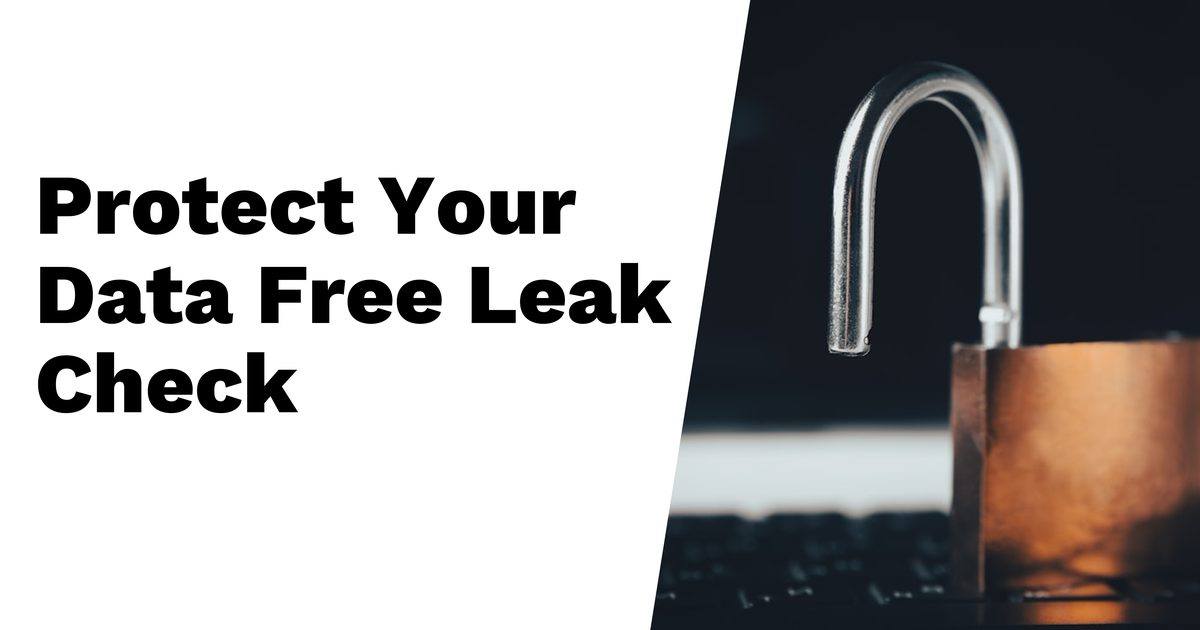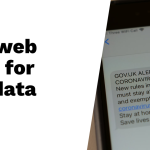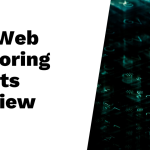In today’s world, protecting personal data has become more important than ever. With the growing number of data breaches affecting millions globally, individuals must take proactive steps to secure their information. Essential strategies include implementing credit freezes with major bureaus like Experian and TransUnion, this locks access to your credit report and helps prevent unauthorized accounts. Additionally, using identity monitoring services such as Credit Karma can alert users about potential breaches in real-time. Regularly checking financial statements and employing two-factor authentication further enhances security. By actively utilizing these tools in 2025, you can significantly reduce risks related to identity theft and unauthorized access.
Table of Contents
- Understanding Rising Data Breach Threats
- Effective Credit Freezes for Protection
- Identity Monitoring Services You Can Use
- Data Removal Services for Personal Safety
- Recent Data Breach Insights for 2025
- Practical Recommendations for Individuals
- Resources for Data Leak Checks and Monitoring
- Frequently Asked Questions
Understanding Rising Data Breach Threats

Data breaches are increasingly common, impacting various industries and millions of individuals worldwide. As many people shift to remote work, vulnerabilities in personal data security have also risen. Cybercriminals are employing more sophisticated techniques to exploit these weaknesses, making it essential for everyone to stay vigilant. Phishing scams remain a prevalent method for initiating breaches, often using misleading emails or messages to trick individuals into revealing personal information. Additionally, social engineering tactics have evolved, turning everyday users into prime targets. The Dark Web acts as a marketplace for buying and selling stolen data, amplifying the impact of breaches. Alarmingly, many data breaches go unreported, obscuring the true scale of the issue. Organizations frequently neglect to implement robust security measures, leaving them open to potential breaches. Recent studies indicate that small businesses are particularly vulnerable due to often weaker security protocols. Moreover, with regulatory penalties for breaches increasing, companies are being pushed to enhance their data protection strategies.
Effective Credit Freezes for Protection
A credit freeze is a powerful tool for safeguarding your financial identity. By preventing creditors from accessing your credit report, it becomes significantly more difficult for identity thieves to open accounts in your name. This proactive measure is free and can be set up quickly with the three major credit bureaus: Experian, Equifax, and TransUnion. You can freeze your credit online or over the phone, ensuring that your personal information remains secure. If you need to apply for credit, you can unfreeze your credit temporarily or permanently, providing flexibility without harming your credit score.
To maximize your protection, be sure to freeze your credit with all three bureaus, as each one maintains its own records. You will need to provide personal information, such as your Social Security number and address, to initiate the freeze. It’s important to remember that while a credit freeze can block new creditors, it does not stop existing creditors from accessing your account or collecting debts.
In some states, additional protections are available, including automatic credit freezes for minors. Keeping detailed records of your freeze requests and any assigned PINs or passwords is essential for managing your credit effectively. The convenience of lifting a freeze instantly online makes it easy when you need to apply for new credit. Additionally, consider setting up alerts with your credit bureaus to stay informed about any unusual activity, reinforcing your overall defense against identity theft.
Identity Monitoring Services You Can Use
Identity monitoring services help keep your personal information safe by tracking it across different platforms. They alert you to any potential risks, giving you a chance to act quickly. Many of these services include dark web monitoring, which checks if your data is being sold or shared online without your knowledge. Some even offer insurance against identity theft, covering the costs you might face while recovering from such an incident.
Regular updates and alerts from these services keep you informed about the status of your data. It’s important to select a reputable provider, so look for strong customer support and positive user reviews. Some services also offer credit score tracking, which is useful for understanding your credit health and overall financial well-being.
Family plans are available with many providers, allowing you to protect multiple members under a single subscription. This can be cost-effective and provides peace of mind for households. Look for proactive monitoring services that can catch issues before they escalate, rather than reactive services that only alert you after a problem has occurred.
Before committing to a paid service, consider starting with free options like Credit Karma. This can give you a taste of identity monitoring without any financial commitment. Always take the time to read through the terms of service, especially regarding cancellation policies and the extent of monitoring offered. This ensures you know exactly what you are signing up for.
Data Removal Services for Personal Safety
Data removal services play a crucial role in enhancing personal privacy by helping individuals erase their personal information from data broker sites. These services automate the removal process, making it significantly easier and faster than handling it alone. You can request the removal of various types of sensitive data, including addresses, phone numbers, and even financial information. Some services offer ongoing monitoring to ensure your data stays removed over time, providing an added layer of security.
When considering a data removal service, it’s essential to read reviews and choose one with a proven track record of success and transparency. Many of these services offer free trials, allowing you to test their effectiveness before making a commitment. It’s also important to understand the scope of removal, as some services may target only specific sites or types of data. While data removal does not guarantee complete anonymity online, it can significantly reduce your exposure to potential risks.
Before signing up, inquire about the methods used for removal and the expected timeframes. Keeping a record of what data has been removed can also be beneficial for your future reference. Overall, utilizing data removal services can be a proactive step toward safeguarding your personal information in today’s digital landscape.
Recent Data Breach Insights for 2025
In 2025, data breaches have escalated in both frequency and severity, impacting millions globally. Notably, the Qantas data leak exposed sensitive information for 5.7 million customers, shining a light on vulnerabilities in third-party vendor security. Similarly, the Red Hat breach, which involved the theft of around 570GB of data, underscores the risks tied to vendor relationships and the necessity for enterprises to safeguard their data. Discord’s vendor breach, affecting 70,000 users, serves as a reminder of the dangers associated with outsourcing and the critical need for thorough vetting of third-party services. The trend indicates that breaches are not only becoming more common but also affecting a broader range of individuals than ever before. Cybersecurity experts warn that ransomware attacks are on the rise, placing added pressure on organizations to prioritize cybersecurity. Financial losses from data breaches are compelling businesses to invest significantly in protective measures. Public sector breaches are also increasingly prevalent, disrupting government agencies and public services. The surge in mobile device usage introduces new vulnerabilities, making personal data more susceptible to exploitation. As regulations evolve, organizations will face new requirements on how they manage and report breaches. Furthermore, emerging technologies, including AI, present both challenges and opportunities in the realm of cybersecurity.
Practical Recommendations for Individuals
To protect your personal data effectively, start by regularly changing your passwords. Use unique passwords for different accounts to minimize risks. Enabling two-factor authentication on all your accounts adds an extra layer of security that can deter unauthorized access. Be cautious when sharing personal information online, especially on social media platforms, where oversharing can lead to unwanted exposure.
Monitoring your credit report is essential; check for any unauthorized accounts or inquiries that could indicate identity theft. Educate yourself about common phishing tactics, as being aware can help you avoid falling victim to scams. Whenever you access sensitive information over public Wi-Fi, use secure connections, like VPNs, to protect your data from potential threats.
Consider using password managers to securely keep track of complex passwords, which simplifies managing your online security. Stay informed about recent data breaches and understand how they may affect you. Proactively request credit reports from bureaus to check for discrepancies. Joining identity theft protection programs can also be beneficial, as they offer support and resources in case of a data compromise.
- Regularly change your passwords and use unique passwords for different accounts to reduce risk.
- Enable two-factor authentication on all accounts to add an extra layer of security.
- Be cautious when sharing personal information online, especially on social media platforms.
- Monitor your credit report regularly for any unauthorized accounts or inquiries.
- Educate yourself about common phishing tactics to avoid falling victim to scams.
- Use secure connections (like VPNs) when accessing sensitive information over public Wi-Fi.
- Consider using password managers to keep track of complex passwords securely.
- Stay informed about recent data breaches and how they may affect you.
- Be proactive in requesting credit reports from bureaus to check for discrepancies.
- Join identity theft protection programs that offer support and resources in case of data compromise.
Resources for Data Leak Checks and Monitoring
There are several reliable resources available for checking data leaks and monitoring your personal information. Credit Karma offers free identity monitoring services, alerting users to potential data breaches that may involve their information. Another noteworthy service is LifeLock, which provides comprehensive monitoring and identity theft protection. For those concerned about email security, Avast’s Hack Check allows users to see if their email accounts have been compromised and offers protection against personal data leaks. Breachsense specializes in tracking dark web activity, helping to identify potential data breaches before they affect you. A valuable tool for email breach checks is Have I Been Pwned, where users can easily find out if their email has been part of any known breach. Additionally, Experian and TransUnion provide free credit reports and monitoring services, enabling individuals to stay informed about their credit status and potential risks. IdentityGuard uses AI-driven technology to monitor for potential identity threats and sends alerts to keep users informed. For a broader understanding of data breaches and identity theft, Privacy Rights Clearinghouse offers extensive resources. Lastly, the National Cyber Security Centre (NCSC) provides guidance on protecting personal data and managing risks effectively.
| Service Name | Description | Website |
|---|---|---|
| Credit Karma | Offers free identity monitoring and alerts for potential data breaches. | https://www.creditkarma.com/id-monitoring |
| LifeLock | Provides comprehensive identity theft protection and monitoring services. | https://lifelock.norton.com/learn/data-breaches/breach-detection |
| Avast | Offers a data leak checker to find out if your email account is compromised. | https://www.avast.com/en-us/hackcheck |
| Breachsense | Specializes in monitoring dark web activity for potential data breaches. | N/A |
| Have I Been Pwned | Allows users to check if their email has been involved in known breaches. | https://haveibeenpwned.com/ |
| Experian | Offers a free credit report and monitoring services. | N/A |
| TransUnion | Provides credit monitoring tools and identity theft protection services. | N/A |
| IdentityGuard | Offers AI-driven monitoring for potential risks and alerts to users. | N/A |
| Privacy Rights Clearinghouse | Provides extensive resources for consumers about data breaches and identity theft. | N/A |
| National Cyber Security Centre (NCSC) | Offers guidance on how to protect personal data and manage risks. | N/A |
Frequently Asked Questions
What is a data breach and how does it affect me?
A data breach happens when someone gets access to your personal information, like passwords or financial details, without your permission. This can lead to identity theft or unauthorized transactions, which can really affect your life.
How can I check if my personal data has been leaked?
You can use various online tools and services that offer free data leak checks. These tools will help you see if your email or other personal information appears in any public data breaches.
What does breach monitoring do for me?
Breach monitoring keeps an eye on your personal information in data breaches. If your information is found, you’ll get alerts so you can take steps to protect yourself, like changing passwords or freezing your credit.
Is it important to regularly check for data leaks?
Yes, it’s important to check for data leaks regularly because hackers are always finding new ways to access personal information. Staying proactive helps you catch potential issues early before they become bigger problems.
What should I do if I find that my data has been compromised?
If you find out your data has been compromised, act quickly. Change your passwords, inform your bank or credit card company, and consider placing fraud alerts on your credit report to prevent further issues.
TL;DR In 2025, protecting personal data is crucial due to increasing data breach threats. Key strategies include implementing credit freezes, using identity monitoring services like Credit Karma and LifeLock, and opting for data removal services to eliminate personal information from data brokers. Recent significant breaches emphasize the importance of vigilance. Individuals should stay informed, enable two-factor authentication, and regularly monitor financial statements to detect unauthorized activity. Utilizing available resources can help mitigate the risk of identity theft.





